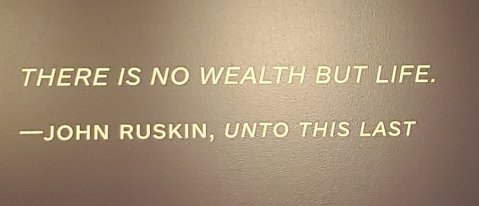“He was told once that any good Bohemian would drive 100 kilometres out of his way just to hear an insult – a thousand kilometres if the insult was good enough.”

Turning to ash while politicians do nothing
While we have been living in a dystopian world for weeks with the thick smoke haze, a red sun and health warnings to stay indoors, I see no real action from our political leaders.
Mariam is lucky to be alive — but she chooses to surround herself with death
After a horrific car accident 15 years ago left her without a scratch, Mariam realised she wasn't invincible. Now she helps other people during their own death.
Milan Kundera, re-Czeched
As widely reported, Milan Kundera's Czech citizenship renewed -- as Ruth Fraňková's report at Radio Praha International has it; see also the official Czech embassy in France announcement.
Yes, the Czechoslovak (as it was still then) government stripped Kundera of his citizenship in 1979, and they've now gotten around to restoring it -- rather taking their time about it .....
Long established in France, Kundera also took to writing in French, and considers the French versions the definitive ones of his novels; several are under review at the complete review
As widely reported, Milan Kundera's Czech citizenship renewed -- as Ruth Fraňková's report at Radio Praha International has it; see also the official Czech embassy in France announcement.
Yes, the Czechoslovak (as it was still then) government stripped Kundera of his citizenship in 1979, and they've now gotten around to restoring it -- rather taking their time about it .....
Long established in France, Kundera also took to writing in French, and considers the French versions the definitive ones of his novels; several are under review at the complete review
We may not have media dragons or wights in the real world, but we do have people – and as history shows, people are the strangest creatures of all. With that in mind, we really can’t be surprised that a main ingredient in George R.R. Martin's fantastical concoction is the medley of historical figures who inspired Game of Thrones. Throw in Martin’s intricate settings and unpredictable storylines, and voila! We’re given the delicious gift of a world that seems more deeply rooted in fact than in imagination - because sometimes it really is.
The Ordinary People Who Brought Down the Berlin Wall
In the Sydney Morning Herald Broede Carmody reports that: 'Quite incredible': demand for Indigenous literature goes global.
HarperCollins publisher Judith Curr is quoted as saying:
HarperCollins publisher Judith Curr is quoted as saying:
There is a general reawakening in the United States to the past, present and future realities of First Peoples' lives and readers want to know more," she says. "Mainstream publishers are more open to Indigenous stories of late ... [and] US readers have always been interested in Australia.
Time Capsules
Books are time capsules. They store messages for a potentially endless period of time, and capture, like a photograph, the precise moment in time when they were created. And so, too, are they time machines. They wait upon the shelf for future generations to open them and receive the message. When they are opened, they transport the reader back to the time when they were created, as well as the time they depict.
Seattleite, 92, finally tells story of German who saved more Jews during the Holocaust than Schindler Seattle Times
John McGrath told alleged victim not to complain about agent Adrian Bo
Property boss John McGrath tried to discourage a sexual harassment complaint about a key agent, telling the alleged victim it was "just a stupid comment".
The New York Times – Books May Be Dead in 2039, but Stories Live On - Opinion: On the 600th anniversary of the Gutenberg press, we can still celebrate how stories are shared. By author of The Ten Thousand Doors of January. “In 1439, an eccentric German goldsmith cast the Latin alphabet in lead, smeared the letters with oil-based ink and squashed them beneath a wine press. Johannes Gutenberg hadn’t invented the ink, the paper, the press or the alphabet, but by combining their powers, he built the first printing press and printed the first mass-produced book: a 1,200-page Bible printed on vellum and bound in pigskin.
boing boing – – “Here’s 28 of our favorites from the last year – not all of them published in the last year, mind you – from fairy-tales to furious politics and everything in between, including the furious fairy-tale politics getting between everything. The links here include Amazon Affiliate codes; this helps us make ends meet at Boing Boing, the world’s greatest neurozine…” [Each “favorite” or “best books” list offers unique insights on books that you may have missed – like Coders: The Making of a New Tribe and the Remaking of the World.
34 corporate leaders and the books that shaped them
INQUIRER.net
... humble, grounded and human unlike so many in the checkered history of the empire's more than 70 rulers. ... I read it in my first year of working and it has served as the foundation for ... best to disrupt and continue “fixing” one's business while resources are plentiful. .... I use these books to align my leaders in Golden ABC.
Machine learning has revealed exactly how much of a Shakespeare play was written by someone else MIT Technology Review
US OFFICIAL: PENSACOLA SHOOTING SUSPECT WAS SAUDI AF OFFICER. “FBI and other authorities began investigating the incident to determine if it was terrorism-related… The shooter opened fire in a classroom building on Friday morning. The attack left four people dead, including the assailant, and multiple people wounded.”
“Just spitballing here, but maybe it’s time to take a closer look at Saudi nationals hanging out in Florida for ‘flight school.’ Kinda maybe figured we would’ve done that 18 years ago, but apparently not,” Sean Davis of the Federalisttweets.
POWERFUL SYMBOLISM: Lech Walesa going to Hong Kong.
Lech Walesa faced down an “evil empire” and freed his country from the yoke of Communist domination. Now, three decades later, the former Solidarity leader, Polish president and Nobel Peace Prize winner says he is ready to go to Hong Kong and stand with protesters there who are trying win a similar victory for freedom.The circumstances the Hong Kong protesters face today are eerily similar to those Walesa faced in Poland. In Hong Kong, as in Poland, a grass-roots movement has risen up against a communist puppet government. In Hong Kong, as in Poland, they are menaced by a totalitarian empire across their border that threatens to invade and crush them. In Hong Kong, as in Poland, the puppet regime has cracked down on the protesters, firing at marchers in the streets and arresting opposition leaders. And in Hong Kong, as in Poland, few believe the democratic forces can prevail against the massive powers arrayed against them.
That should not faze them, Walesa told me in an interview. “When I was involved in my struggle, nobody in the world believed we could win the victory. I consulted the big leaders of the world. … and none of them, not even a single one, claimed that we stood the least of chances.”But they did succeed — and Walesa believes the odds of success in Hong Kong are even better than they were in Poland. Decades ago, Solidarity broke the regime’s monopoly on information by publishing underground newspapers printed with shoe polish that were passed from person to person. Today, he says, modern communications technology means Hong Kong’s opposition “can communicate in real time instantly … to establish their solidarity, solidarity among themselves, but also solidarity with the leaders of the world.”Moreover, in Poland, Walesa says, Communist authorities “would be ridiculing us saying, ‘You are so few. What power do you represent?’” It was only after Pope John Paul II first visited Poland in 1979, and millions came out to greet the Polish pontiff, that they realized the Communists had lied to them. They were not so few, after all; they were millions strong. But in Hong Kong, the people know they are not few. This weekend, nearly 3 million people — over 71 percent of eligible voters — turned out for district council elections, the only fully democratic elections in Hong Kong. In a vote considered a referendum on the protest movement, the pro-democracy parties crushed the pro-Beijing parties, showing that the people of Hong Kong support the opposition.Of course, Beijing learned the lessons of Walesa’s success. Chinese leaders saw that Soviet leader Mikhail Gorbachev was unwilling to kill indiscriminately to maintain power. In Tiananmen Square, they demonstrated no such reticence. This is why, Walesa says, it is critical that the United States and the rest of the world’s democracies stand with the people of Hong Kong and use their leverage to deter a Chinese crackdown.
He’s right. And Trump’s spent the last few months teaching the PRC’s leadership that their economy, and diplomacy, is far more fragile than they had thought. He seems to have some skill at economic warfare, and some understanding of mass opinion on the part of those disenfranchised by their leadership.
UPDATE: Speaking of those disenfranchised by their leadership, I’m reminded in the comments thatWalesa was a Tea Party supporter. More here.
WELL, THIS IS THE 21st CENTURY, YOU KNOW: Russian cows get virtual reality goggles.
Alain Bertaud, Order Without Design: How Markets Shape Cities.
James W. Cortada, IBM: The Fall and Reinvention of a Global Icon.
Joanna Lillis, Dark Shadows: Inside the Secret World of Kazakhstan.
Julia Lovell, Maoism: A Global History.
Charles Fishman, One Giant Leap: The Impossible Mission that Flew us to the Moon.
Bryan Caplan and Zach Weinersmith, Open Borders: The Science and Ethics of Immigration.
Bruce Cannon Gibney, The Nonsense Factory: The Making and Breaking of the American Legal System.
Ben Westhoff, Fentanyl, Inc.
Judith Grisel, Never Enough: the neuroscience and experience of addiction.
David Sorkin, Jewish Emancipation: A History of Five Centuries.
Matthew Gale and Natalia Sidlina, Natalia Goncharova.
Lydia Davis, Essays One.
Fuchsia Dunlop, The Food of Sichuan.
Frederic Martel, In the Closet of the Vatican: Power, Homosexuality, Hypocrisy.
Alan Galley, Walter Ralegh: Architect of Empire.
Robert Alter, translator, The Hebrew Bible: A Translation with Commentary (or should that go under “fiction”?).
Pekka Hämäläinen, Lakota America: A New History of Indigenous Power, more here.
And which book takes the very top prize for best of the year? You can’t compare the Alter to the others, so I will opt for Eric Kaufmann’s Whiteshift and also Pekka Hämäläinen’s Lakota America, with Julia Lovell on Maoism and Alain Bertaud on cities as the runner-ups. But again a strong year all around.
